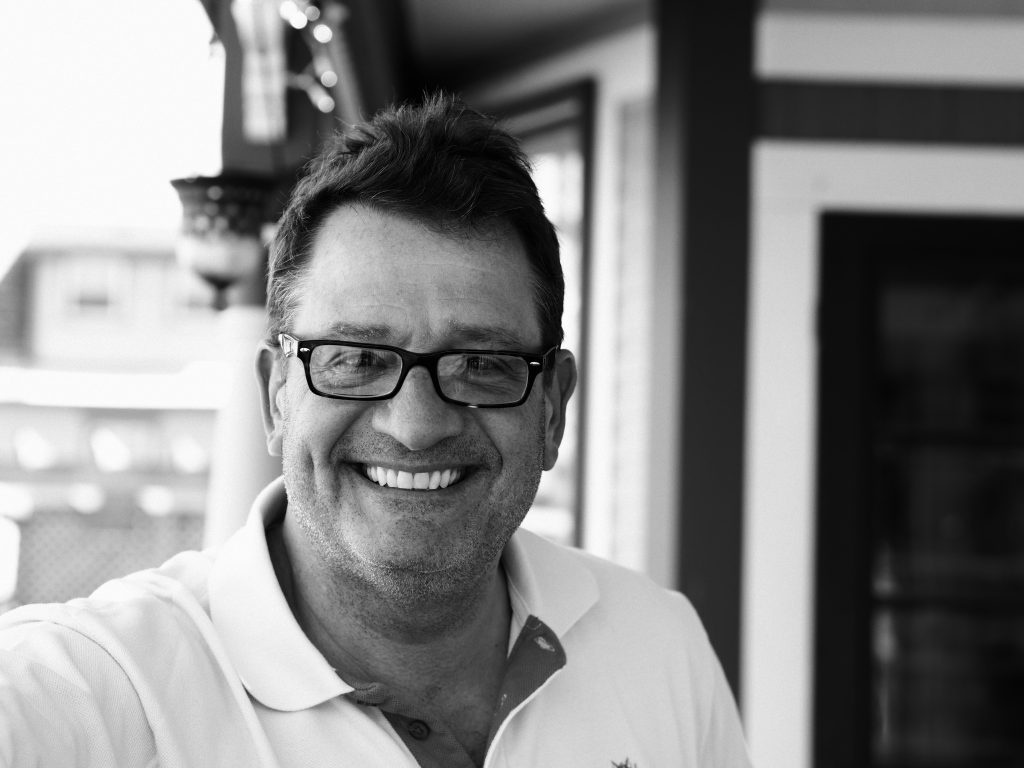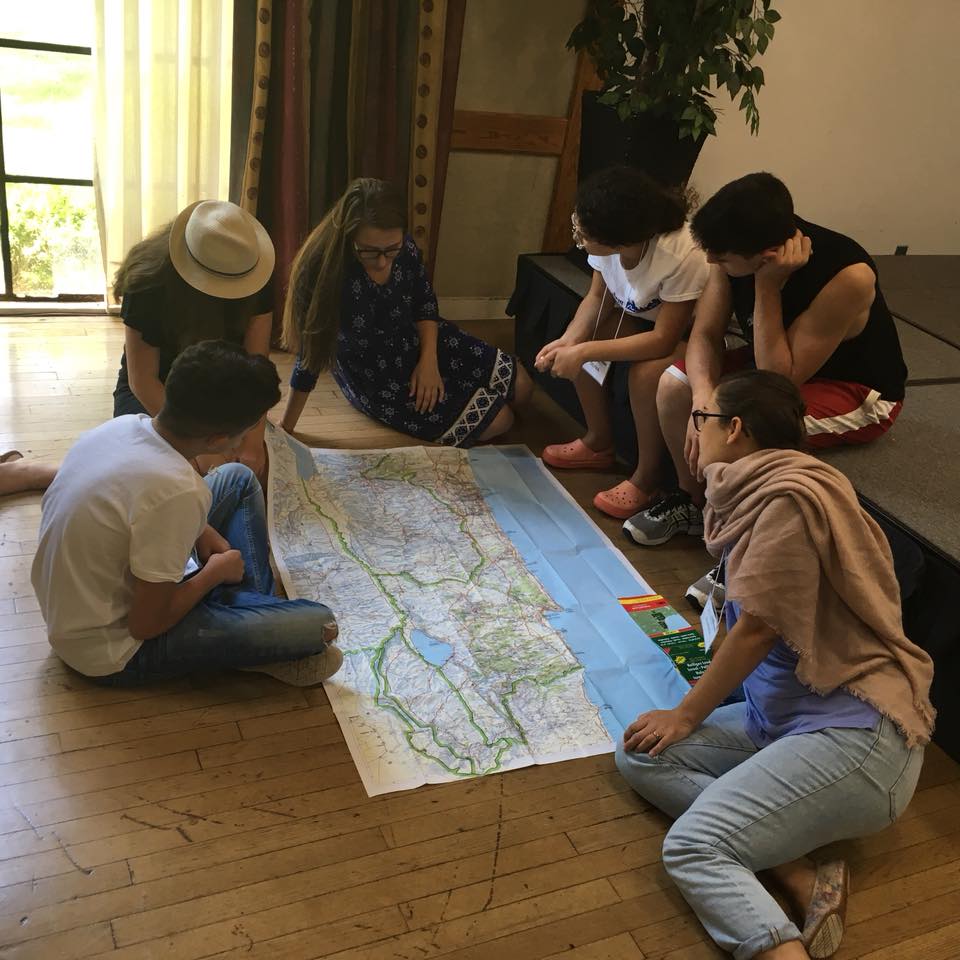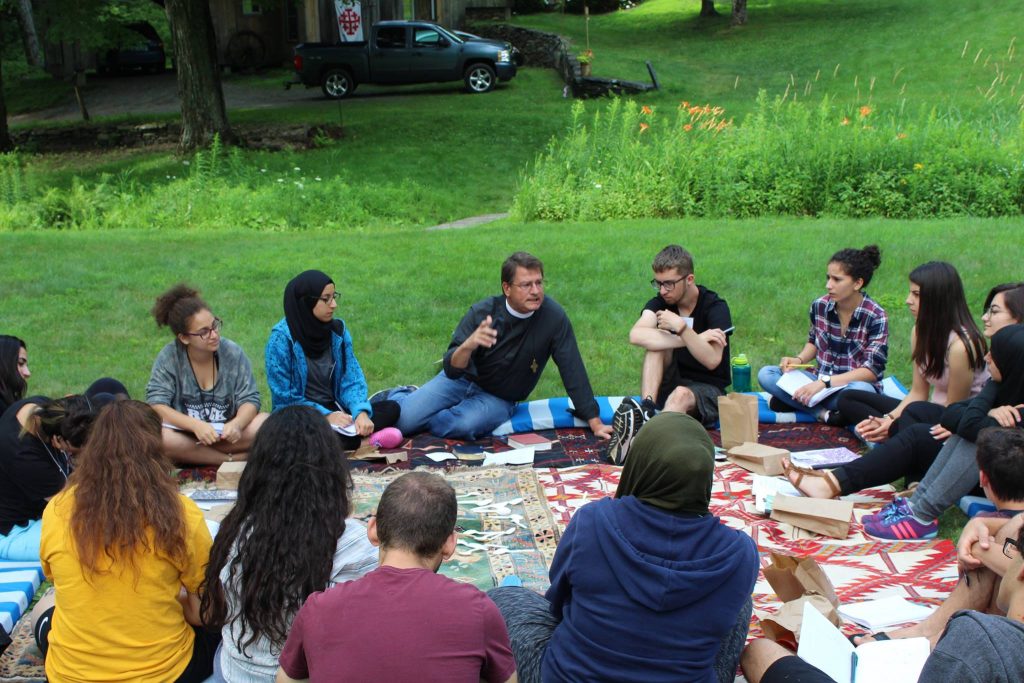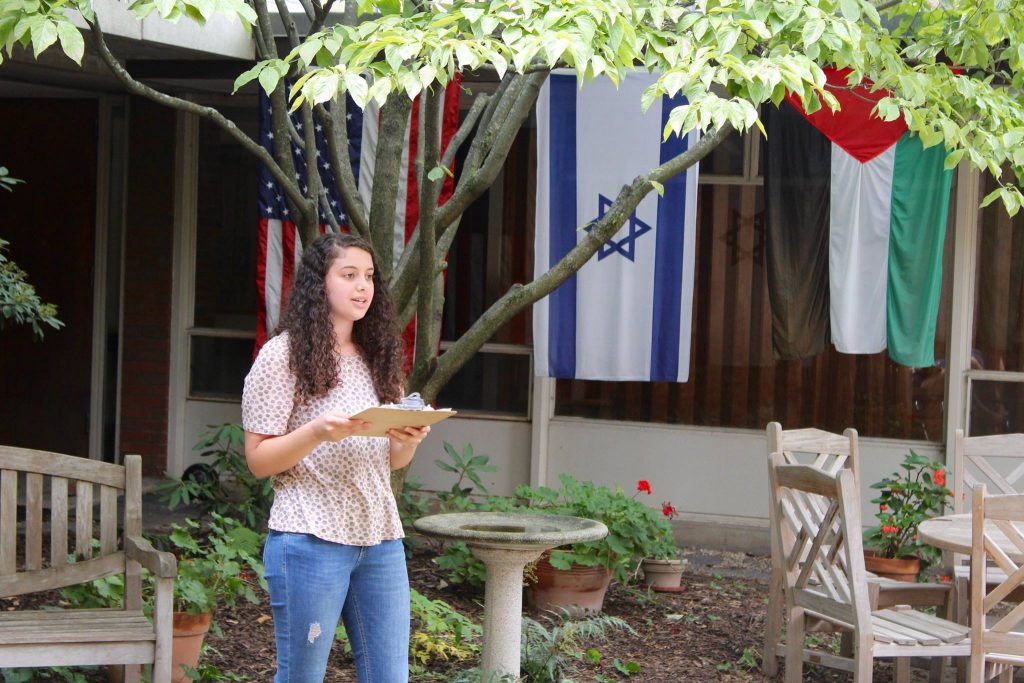The 100-Year View: Nicholas Porter wants to help transform the Israeli-Palestinian conflict
September 11th, 2018 | Alumni, Careers, SIT Graduate Institute

Nicholas Porter is an Episcopal priest, but his perspective is broader than one Christian denomination, or even Christianity as a whole. His chief mission is to aid peace efforts in the region where three of the world’s major religions co-exist. Nick attended the SIT Conflict Transformation program in 2013 and 2014.
His interfaith effort is a natural fit, he says, given his background: “I come from an Arab Christian, European Christian, and Jewish heritage. I’m a practicing Christian and Episcopal priest, but I have specialist knowledge in all the Middle Eastern religions.”
Jerusalem Peacebuilders was born in response to the tenth anniversary of the September 11 attacks against the United States. “There was a tipping-point realization for my wife and me that
interfaith understanding and peacemaking in the Middle East couldn’t be sidelined anymore in our lives.”
Nicholas retired from parish ministry to develop Jerusalem Peacebuilders. He began the organization before he attended SIT Graduate Institute, though he says it “took a marked upswing in activity” after he finished his education.
It was at SIT that Nicholas found a new clarity in his calling as a peacemaker. “I had a classmate who had just returned from the Peace Corps in the Ukraine during the time the Russians annexed Crimea. It obviously affected our classmate quite a bit. We discussed the pros and cons should she go back. I was really struck by something she said: ‘It’s going back to places like Ukraine – or other unsettled areas of the world – where knowledge is created and discovered. You’re at the front lines of the creation of knowledge.’”

“I felt in that a real call,” he says, “a challenge both literal and figurative. What an SIT education is great for is to really be there, to be where knowledge is created and to be on that front line where transformation is occurring.”
It raised an inevitable question in Nicholas: “I asked myself: What do you have to offer?”
He felt called to take up the challenge of building peace in Jerusalem, where conflict has gone on for a long time. He has few illusions about the scale of the task at hand. “It’s been the better part of 100 years getting into the current [Israeli-Palestinian] situation. It will take at least that much time to come out of conflict.”
Because of that long view, Jerusalem Peacebuilders works to train young Israelis and Palestinians to be tomorrow’s peacemakers. “The purpose of our organization is to unite Israelis and Palestinians of every kind of background and prepare them to be positive agents of change in their society. Our goal is a transformed conflict, a peace in which they can share Jerusalem and the land in dignity, security, and peace. But we won’t be the ones doing that. It’s our participants; they are the agents of change.”

The organization began by bringing 11 students from the region to Brattleboro. In summer 2018, there were about 125 students between ages 14 and 18 training in several locations in Vermont, Connecticut, and Texas.
“They are all involved in a four-year program of interfaith leadership and peace education. It occurs both in the schools they attend in Israel and Palestine, and at summer residential programs. Not just sort of camp. The kids do coursework one or two semesters per year, and the summer residential programs are two weeks.”
It’s important to Nicholas that peacemaking not be imposed from outside. “One of the great things SIT taught me is to be aware of an element of Western imperialism in peacebuilding. That’s why we’re working hard with local organizations and our participants and our grads to replace ourselves.”

He hopes that some of Jerusalem Peacebuilders participants will go on to be “thought leaders” and “society leaders.” That’s something that happens, in his view, not only because of their commitment to peace, but because of their commitments to each other as participants in the programs.
Nicholas says he uses what he learned at SIT “in almost everything, all the time. The education I received from the professors I had the privilege of studying with at SIT was outstanding. I use what I learned in conflict transformation, in mediation, and in designing experiential learning programs every single day.”
He believes so strongly in SIT’s model that he’s made it a point to work with and hire SIT grads. “I have confidence in their learning, and their training. It’s simple – the motivation of SIT folks is to better the world.”
